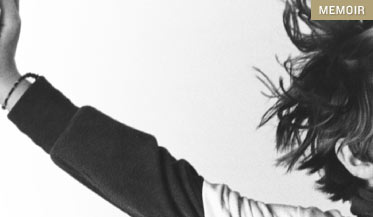Beautiful Boy: A Father’s Journey through His Son’s Meth Addiction
 “Private faces in public places / are wiser and nicer than public faces in private places,” W.H. Auden famously noted. We live in a public age, alas, in which our “portal” to a fellow creature’s suffering is as accessible as a YouTube keystroke. And yet the exchange between public and private remains uneasy despite that accessibility, as David Sheff?s new book poignantly makes clear.
“Private faces in public places / are wiser and nicer than public faces in private places,” W.H. Auden famously noted. We live in a public age, alas, in which our “portal” to a fellow creature’s suffering is as accessible as a YouTube keystroke. And yet the exchange between public and private remains uneasy despite that accessibility, as David Sheff?s new book poignantly makes clear.
Swept away into a sea of incomprehension, pain, and unresolved anger by the descent of his beloved son, Nic, into methamphetamine addiction, veteran journalist and author Sheff does his best to combine an honest account of the pain he suffered as a parent with less personal reporting that investigates the larger dimensions of the problem and its potential treatments. But there’s a disconnect between Sheff’s first person experience as a parent — dealing with the free fall of his oldest son into addiction, rehab, relapse, more rehab, and possible redemption — and his attempt to come at the subject as a reporter, researching the ways in which speed kills. Any parent will find it impossible not to sympathize with Sheff?s dilemma, yet readers may find the dual perspective puzzling.
Sheff quotes F. Scott Fitzgerald on alcoholics: “It’s just that you can’t help them, and it’s all so discouraging.” But another Fitzgerald quote, from The Great Gatsby, comes to mind: “The intimate revelations of young men, or at least the terms in which they express them, are usually plagiaristic and marred by obvious suppressions.” It’s not that Sheff is dishonest, exactly, but his book illustrates the perils of the memoir form: the bastard child of literature, journalism and autobiography requires a masterful touch, like that exhibited in Joan Didion’s chronicle of widowhood, The Year of Magical Thinking, to transcend its narcissistic limitations.
The narrative of Nic’s journey from casual teenage drug abuser to hard-core addict, occasional thief, and experienced con man is the harrowing heart of this story. To his credit, Sheff never gives up on his son, even after several interventions fail, and his own health suffers. To his credit again, Sheff tries to narrate his son’s misadventures, and the ensuing pain caused to all parties, with scrupulous accuracy.
But what’s missing is a larger element of psychological truth. Apart from a few throwaway mea culpas, Sheff seems in some ways remarkably clueless about the ways in which his own behavior — including a short-lived affair with one of his ex-wife’s best friends and a series of casual flings with young ladies whom he brought home, to his son’s bafflement, after winning a bitter battle for primary custody — may have contributed to Nic’s problems. Then again, Nic?s troubles may have been only the accidental byproduct of affluent suburban life or an unlucky roll of the genetic dice. Sheff admits he doesn’t really know the answers. But that begs the question of why he wrote a first person book with his son’s life, and near-death, at its core. Is it meant to be self-help literature, as the appendix listing “Resources,” from Al-Anon to the National Institute of Drug Abuse, suggests? Or perhaps an exercise in public therapy, sweetened by a book advance, after an early version of the tale appeared in The New York Times Magazine?
If so, it seems inherently immature, a covert form of competition with his son, who thankfully survived his ordeal and has even written his own memoir: Tweak: Growing Up on Methamphetamine. It begins with a Holden Caulfield-esque cadenza: “I’d heard rumors about what happened to Lauren. I mean, I never even knew her that well but we’d sort of hung out a few times in high school. . . . She had moved to San Francisco when I was a senior and we met somehow — at a party or something. Back in high school it was just pot, maybe I’d do some acid and mushrooms on the weekend.” The voice is clean, even if the body is damaged.
Despite the reader?s acknowledgement of David Sheff?s pain and the educational and therapeutic intentions his book in places demonstrates, one wishes he had left this “material” for his son to deal with as he saw fit. Sometimes private places should remain just that.